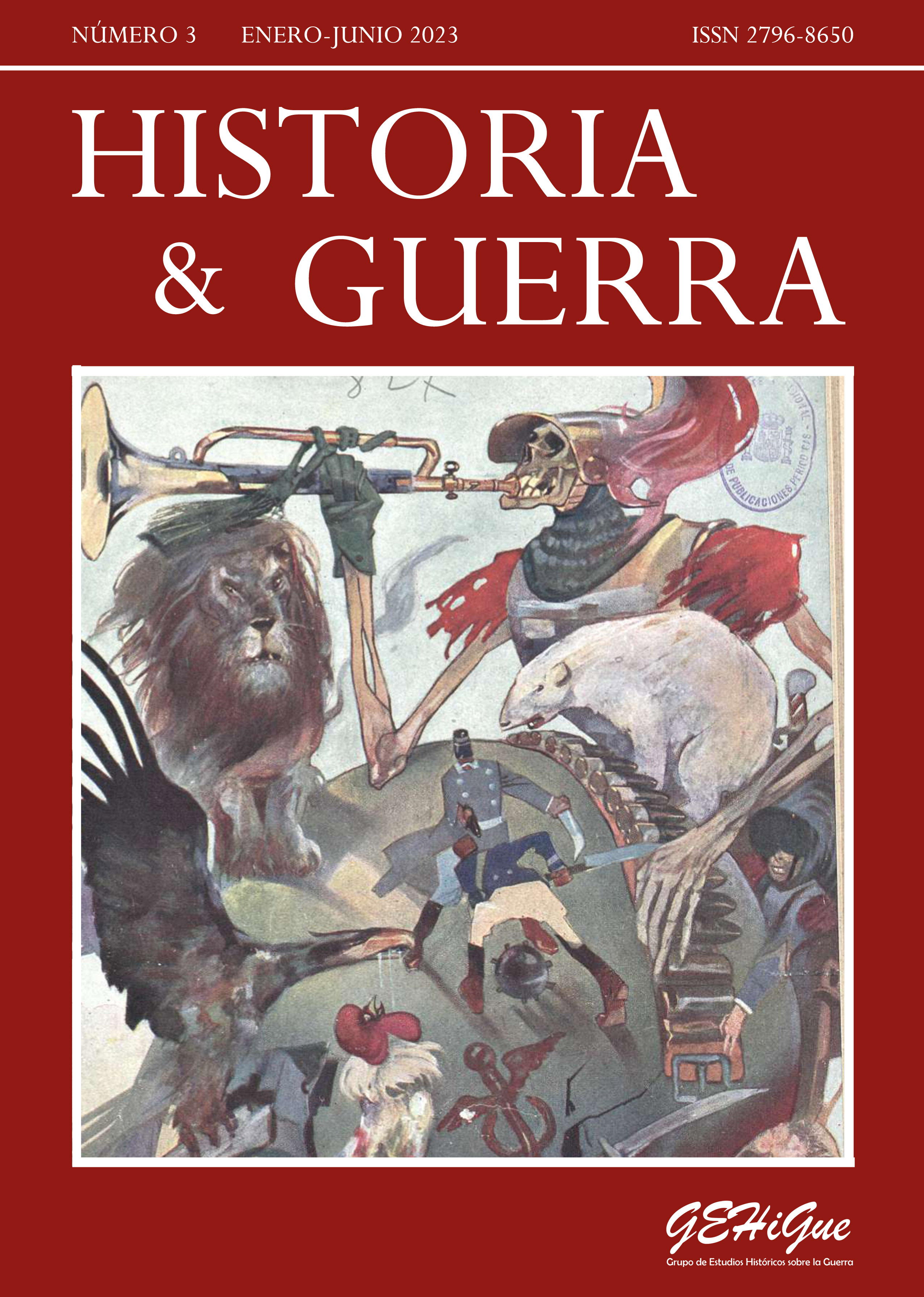The German secret services in Argentina during the Cold War: Scope, limitations, and connections with the local services
Abstract
During the Cold War, the Argentine secret services maintained connections with their colleagues in West Germany. The common denominator of their activities was anticommunism, and their interests, although different, often converged on joint actions, which, on the one hand, sought to combat any attempt by the East German intelligence service to establish itself in Argentina, on the other hand, they also aimed at hindering trade relations between Argentina and East Germany. Moreover, the Argentines tried to strengthen their role as an internal political actor. 1962 was a year of intense intelligence activity in Argentine territory, both for the national as well for the German intelligence services. The discovery of an alleged espionage network, the dawn raid of GDR ships into the port of Rosario and the closure of the GDR Trade Mission in Buenos Aires had more to do with political manoeuvring and propaganda than with a real danger of Communist infiltration in Argentina.Downloads
References
Chiarini, S. y Portugheis, R. (2014). Plan Conintes. Represión política y sindical. Ministerio de Justicia y Derechos Humanos de la Nación.
Bohoslavsky, E. y Vicente, M. (2014). “Sino el espanto”. Temas, prácticas y alianzas de los anticomunismos de derecha en Argentina entre 1955 y 1966. Anuario del Instituto de Historia Argentina, 14.
Cavarozzi, M. (2006). Autoritarismo y democracia (1955-2006). Ariel.
Cisneros, A. et al. (1999). Historia general de las relaciones exteriores de la República Argentina. Tomo XIII: Las relaciones políticas 1943–1966. Consejo Argentino para las Relaciones Internacionales.
Florit, C. (1963). Las fuerzas armadas y la guerra psicológica. Ediciones Arayu.
Franco, M. (2012). Rompecabezas para armar: la seguridad interior como política de Estado en la historia argentina reciente (1958-1976). Contemporánea, historia y problemas del siglo XX, 3, 77-95.
Hudson, C. (2015a). Sobre dudas y procedimientos. Crisis final y derrocamiento de Arturo Frondizi. Anuario IEHS 29/30, 43-69.
Hudson, C. (2015b). La mirada del otro. El anticomunismo en la crisis del gobierno de Frondizi. Anuario del Centro de Estudios Históricos “Prof. Carlos S.A. Segreti”, 15, 223-240.
Leal Buitrago, F. (2003). La Doctrina de Seguridad Nacional: materialización de la Guerra Fría en América del Sur. Revista de Estudios Sociales, 15, 74-87.
Kott, S. (2021). Organiser le monde. Une autre histoire de la Guerre Froide. Éditions du Seuil.
Kowalczuk, I. (2013). Stasi konkret. Überwachung und Repression in der DDR. Beck.
Lafuente, V. (2022). Die Beziehungen zwischen Argentinien und der DDR 1945–1990. Internationale Akteure im Spannungsfeld des Kalten Krieges. Böhlau Verlag.
Meding, H. (2020). Organisation Gehlen und Bundesnachrichtendienst in Lateinamerika. En W. Krieger et al. (dir.). Die Auslandsaufklärung des BND. Operationen, Analysen, Netzwerke (pp. 538-813). Ch. Links Verlag.
Míguez, M. (2011). La relación entre la política interna y la política exterior en el proyecto desarrollista argentino 1958-1962. Contemporánea, historia y problemas del siglo XX, 2, 53-78.
Müller-Enbergs, H. (2011). Hauptverwaltung A (HV A). Aufgaben-Strukturen-Quellen (MfS Handbuch). BStU.
Marengo, M. (2015). Lo aparente como real: un análisis del sujeto comunista en la creación y consolidación del servicio de inteligencia de la policía de la Provincia de Buenos Aires 1930-1962. Universidad Nacional de La Plata.
Musacchio, A. (2010). La otra Alemania: las relaciones de Argentina con la República Democrática Alemana (1955-1964). Iberoamericana, 43, 79-99.
Potash, R. (1994). El ejército y la política en argentina 1962-1973. De la caída de Frondizi a la restauración peronista. Primera parte, 1962-1966. Editorial Sudamericana.
Szusterman, C. (1998). Frondizi. La política del desconcierto. Emecé.
Copyright (c) 2022 Víctor Manuel Lafuente

This work is licensed under a Creative Commons Attribution-NonCommercial 4.0 International License.

Historia & Guerra uses an international license Attribution-NonCommercial 4.0 International (CC BY-NC 4.0).
You are free to:
- Share — copy and redistribute the material in any medium or format.
- Adapt — remix, transform, and build upon the material.
- The licensor cannot revoke these freedoms as long as you follow the license terms..
Under the following terms:
Attribution — You must give appropriate credit, provide a link to the license, and indicate if changes were made. You may do so in any reasonable manner, but not in any way that suggests the licensor endorses you or your use.
NonCommercial — You may not use the material for commercial purposes.
No additional restrictions — You may not apply legal terms or technological measures that legally restrict others from doing anything the license permits.
Notices:
You do not have to comply with the license for elements of the material in the public domain or where your use is permitted by an applicable exception or limitation.
No warranties are given. The license may not give you all of the permissions necessary for your intended use. For example, other rights such as publicity, privacy, or moral rights may limit how you use the material.
The author retains all rights to his work without restriction and grants Historia & Guerra the right to be the first publication of the work. Likewise, the author may establish additional agreements for the non-exclusive distribution of the version of the work published in the Journal (for example, placing it in an institutional repository or publishing it in a book), with the acknowledgment of having been first published in this journal. Use of the work for commercial purposes is not permitted.














.jpg)















